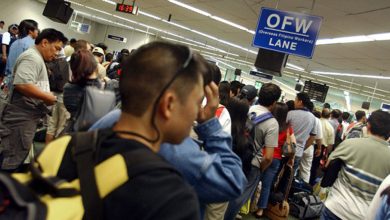Dubai: The number of undocumented Filipino “tourist workers” becoming victims of contract substitution or illegal recruitment has increased, said a Philippine consulate official.
Philippine Consul General Paul Raymund Cortes had sought the help of 120 community leaders during the second town hall meeting to address the pressing issue of trafficked Filipino women coming to Dubai for employment, reported Gulf News.
The Philippine government defines “tourist workers” as those who leave the country with tourist visas but with the objective of finding jobs abroad, the report said.
Filipinos can work abroad through direct hiring by foreign employers or by licensed recruitment agencies that are monitored by the government so that they would not fall prey to illegal recruiters or human traffickers.
Around 100 of the 186 individuals the consulate has reportedly repatriated from January to the first week of June this year were trafficked or did not go through proper channels.
“The victims are usually from provinces and when you see them, they’re so naive that they’ll believe anything promised to them,” Cortes was quoted as saying.
“They come here expecting to be English teachers because some of them are educated. But then they are picked up by whoever and transported directly to their new residence to work as household service workers (HSWs).”
Because the Philippines has stopped sending HSWs to the UAE, unscrupulous recruiters charge up to Dh21,000 to employers here to illegally recruit workers in the Philippines.
The contracts these workers sign in the Philippines are replaced with another one less which is favorable to them once they reach the UAE, Cortes said.
Contract substitution is illegal as per the new ministerial decree 764 of 2015 that prohibits any alteration or adjustments to the contract terms unless approved by the ministry.
But this presupposes that the first contract workers had signed in their home country is the standard unified contract approved by the UAE Ministry of Human Resources and Emiratization.
In most cases, victims are reportedly unaware of this and would only seek assistance from the consulate once it’s too late. They would then request to get their unpaid salaries and passports and be repatriated after that. Cortes said the consulate sometimes receives five complainants of this nature a day, or 10 a week.
In the recently concluded job fair on June 3 alone, some 12,000 job seekers turned up, majority of whom were professionals with tourist visas, which proved that Philippine border controls had failed to properly screen genuine tourists from those who are not. Cortes reportedly said that as far as the UAE is concerned, their entry is perfectly legal since they have visas.
Cortes said they have alerted their home office and partner agencies of the situation to help solve the problem. But he said he needs the community to help out by alerting them if they know of any victims of trafficking.
“At the end of the day, we will need everybody’s vigilance. If you spot anyone who’s facing the same issues, tell us about it so we can extend assistance,” he was quoted as saying by Gulf News.






